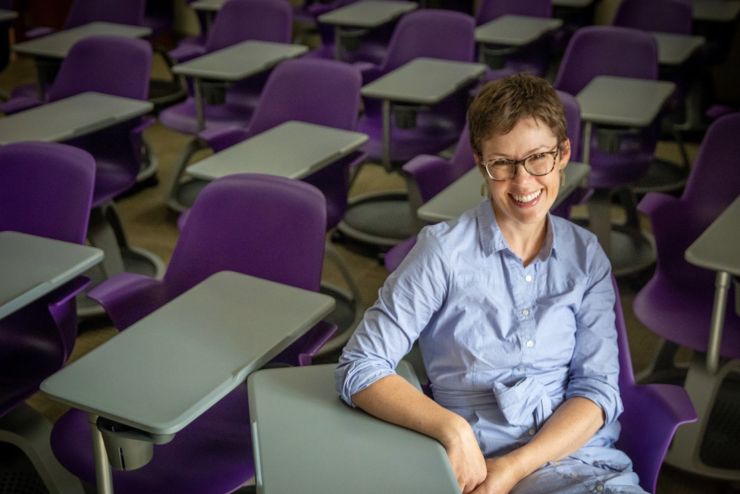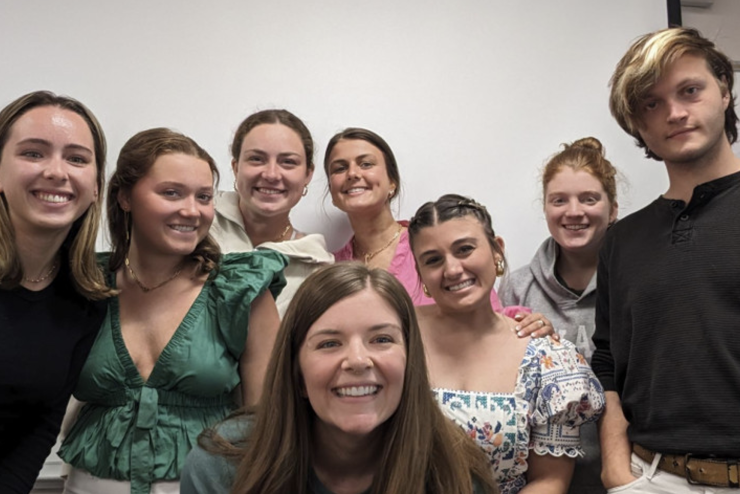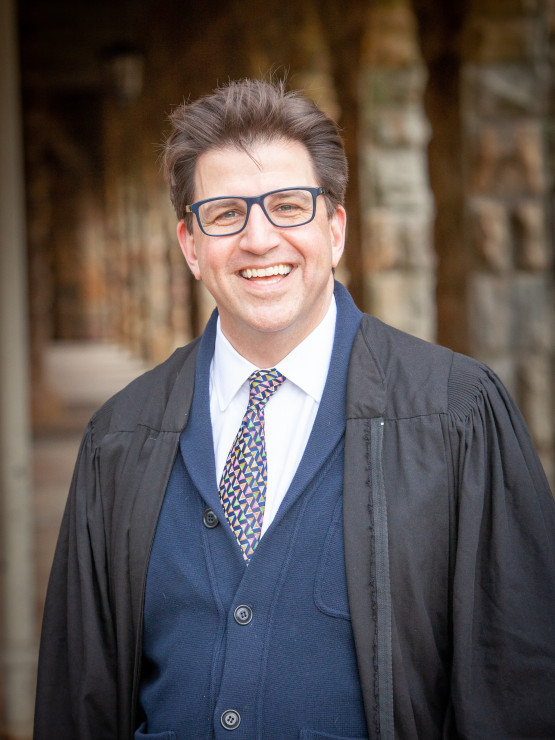
Professor Kate Cammack
Professor Kate Cammack reflects on what it means to teach today. She is currently serving as co-director of Sewanee’s Center for Teaching.
Sewanee’s Psychology curriculum is designed to cultivate core competencies in psychology. Students explore core subdisciplines in psychology and engage in hands-on laboratory courses that allow them to develop and conduct inquiry-driven research projects in psychology. Our current course offerings reflect the breath of psychology and emphasize modern and integrative approaches to understanding the human condition.
Requirements for the Major & Minor in Psychology
Requirements for the Major & Minor in Neuroscience | Website
A study of clinical psychology from a scientist-practitioner perspective, including DSM diagnostic criteria, assessment measures and strategies, treatment modalities, case studies, and ethical issues. Major theoretical paradigms and research on etiology, diagnosis, and treatment of mental illness are presented and discussed
An examination of physiological, social, and emotional factors affecting all stages of individual development during adolescence. Major theories and research on the subject are introduced. Among the topics addressed are biological changes, identity, autonomy, peer influences, substance abuse, and intimate relationships. Students are expected to present results from research studies they conduct on issues of adolescence.
Myriad drugs are used in recreational and/or medical contexts, and play a complex role in our society as well as cultures around the world. The course will introduce major principles of pharmacology and neurobiology and explore how drugs impact normal behavioral and cognitive processes. Specific categories of drugs, including opioids, psychostimulants, alcohol, and cannabinoids, will be discussed in detail. Throughout the course, we will explore major biological and psychological factors that contribute to various patterns of drug use and abuse, including dependence and addiction, and learn about current and emerging approaches to addiction treatment. We will also engage with primary literature in psychology and neuroscience, and learn how to read and interpret journal articles. At the end of this course, you will have gained a broad understanding of how drugs act on the brain to influence our behavior and the complex ways that substance use impacts our community.
An exploration of Latinx psychology with a specific focus on the United States. Themes and issues relevant to and impacting upon Latinx psychology including cultural strengths, identity, immigration, acculturation, colonialism, prejudice/stereotype, intersectionality, and mental health will be studied through first-person accounts, media, and scientific literature.
This seminar examines topics and issues in human judgment and decision-making. Drawing from a range of materials including primary sources, we will consider various approaches to the study of decision-making, as well as descriptions and theories of decision-making derived from those approaches. How might a fuller understanding of psychology help us to facilitate better decisions by ourselves and others? Together, we will explore applications of psychological concepts and findings to real-world choices both personal and professional, in arenas including economics, politics, business, marketing, and health—with implications for individuals, organizations, and societies. Along the way, we will consider issues including perceived vs. actual choice, external influences on our decisions vs. notions of agency and responsibility, decisions we don’t even realize we have, differing cultural narratives of choice, and the complexities and possibilities of better decision making.
This seminar considers how psychologists put their skills and training to work in support of transformative futures for individuals, communities, and society. To understand how social change happens, we’ll draw on theories from community psychology, organizational psychology, and liberation/critical psychology to explore the types of leadership practices and organizational structures needed to create and sustain social change efforts. Social change organizations represent an increasingly crucial component of society. They are central to addressing society’s major challenges, from environmental destruction to poverty and inequality. We will learn about a new organizational structure each session, endeavoring to understand their relationship to social change efforts as we discuss, analyze, and critique organizational theory and practice. We’ll also examine leadership in social change organizations, where transformation is often understood as a collective phenomenon and as a learning process. While effective leadership for social change can sometimes mean taking decisive individual action, the less often discussed skills of effective leaders include collaboration, dialogue, critical systems thinking, an understanding of social power, and relationship development. In this course, we will discuss these skills and work to begin establishing them.

Professor Kate Cammack
Professor Kate Cammack reflects on what it means to teach today. She is currently serving as co-director of Sewanee’s Center for Teaching.

Professors Katy Morgan, Kate Cammack, & Teri Terigele
Professors Katy Morgan, Kate Cammack & Teri Terigele have used their time as Faculty Fellows for Community-Engaged Learning to develop meaningful, collaborative learning experiences alongside community partners.

Professor Al Bardi
As Chair of Sewanee’s Indigenous Engagement Initiative, Professor Al Bardi has cultivated conversation and understanding of Indigenous representation and inclusion through allyship, initiatives, and new courses.